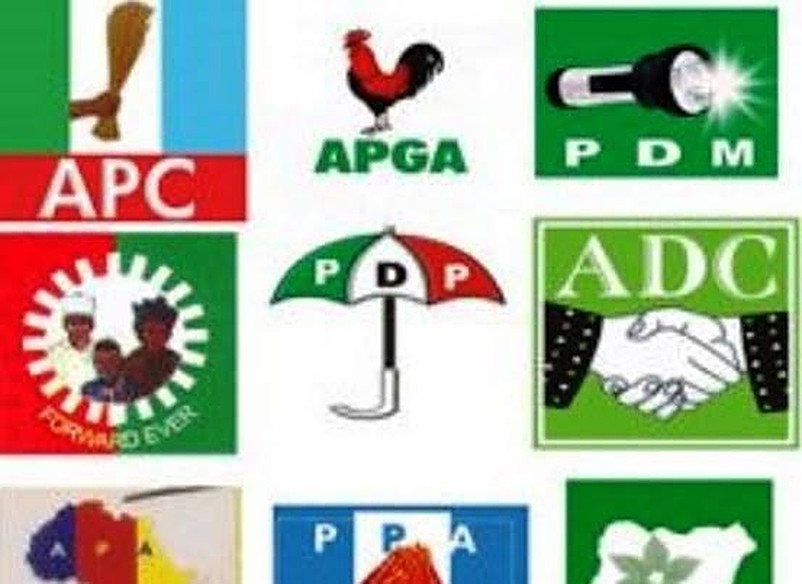Latest
Fight-to-finish in guber, house of assembly races
Published
1 year agoon
By
Publisher
By Ehichioya Ezomon
As you read this piece, winners and losers would’ve emerged or are discernible among contestants for the March 18 governorship and state assembly poll across Nigeria.
While governorship seats were up in 28 of the 36 states, the poll was for all 36 Houses of Assembly.
Saturday’s franchise was a rehash of the contentious February 25 presidential and federal legislative balloting that produced a near-balance of power among three leading political parties.
But this time, the poll was more explosive, climaxing the 2023 cycle, as the big four platforms tested their ultimate strengths.
Related: Labour’s last might test against 3 big parties
In February, the All Progressives Congress and Peoples Democratic Party won 12 states each, Labour Party 11 states, and New Nigeria Peoples Party secured one state.
In Saturday’s election, the big prizes were states with huge voting publics that produced profound outcomes on February 25, to shred formbooks.
Most pollsters had predicted a landslide for former Anambra Governor Peter Obi of Labour, while few pundits gave the day to former Lagos Governor Bola Ahmed Tinubu of the APC, and former Vice President Atiku Abubakar of PDP.
Related: APC fears losing Lagos March 11 election, engages in messy battle
In the end, Tinubu won in 12 states, including three states from PDP; lost 12 states controlled by the APC to PDP, LP and NNPP; secured the mandatory 25% in 30 states; and garnered the highest number of overall votes of 8,794,726.
Atiku won in 12 states, including five states from APC; lost six PDP states to APC and LP; secured 25% in 19 states; and got second highest votes of 6,984,520.
Obi came into the race with no states under the LP. But on Election Day, he snatched 11 states: six from the APC, four from PDP, and one from the All Progressives Grand Alliance. Obi also secured 25% in 16 states and scored 6,101,533 votes.
The fourth leading candidate and former Kano Governor Rabiu Musa Kwankwaso won his home turf; secured 25% in one state; and earned 1,496,688 votes.
This was the standing, as the poll opened on March 18, with the top parties looking to the presidential candidates to help consolidate their gains of February 25.
But only Obi showed a semblance to continue where he stopped in the prior election, by visiting some states amidst a hero’s welcome by his “OBIdients” supporters.
The visits weren’t campaigns per se, but they gave Obi a chance to renew his supporters’ spirits for the battle to reassert Labour’s formidability as a “structureless” party that’s redefined the political landscape.
Obi aptly described his tours as a “stop by” to say, “a big thank you” to his supporters, even as he sought their “support for Labour’s candidates” in Saturday’s poll.
Related: 2023 countdown (7): APC, PDP consolidate stands for February 25
Obi’s visits to Edo and Delta were non-rancorous, but his Anambra trip stirred controversy between him and Governor Chukwuma Soludo.
In the lead-up to February 25, Prof. Soludo – Obi’s long-time political opponent – proclaimed his ambition won’t fly and should drop out of the race.
But Obi didn’t just win the entire South-East, and six other states, he also secured the highest votes of 95% in Anambra.
Obi claims to have no issues with Soludo and yet, asked his supporters to vote for all Labour candidates, and urged them to “give in their best if elected.”
It’s a coded recipe for legislative “anarchy” should Labour produce a majority in the Anambra House of Assembly that impeached Obi on November 2, 2006 – barely eight months in office as Governor.
Soludo didn’t take lightly Obi’s “instruction” to his supporters, and that raised the political ante a notch higher prior to March 18.
Meanwhile, the imprimatur of President-elect Tinubu and Atiku was hardly noticeable in the campaigns for Saturday’s poll.
Related: 2023 countdown (4): Buhari, Obasanjo right on foreign interference
Tinubu’s engagements included his homecoming to Lagos, to present his “Certificate of Return” to Oba Rilwan Akinolu of Lagos, as Tinubu had promised the Monarch before February 25.
On the occasion that drew huge crowds at the airport to receive him, and at the Palace of the Oba, Tinubu likened the Certificate of Return to the “World Cup” trophy.
In Abuja, there’s a parley of Senators-elect and House of Reps Members-elect with the hierarchy of the APC, which’s poised to have a majority in both Chambers in the 10th National Assembly.
The meeting was a groundwork for zoning of Presiding and Principal Officers’ positions that members have shifted to after the March 18 poll.
But not before Tinubu informed the conclave that he had “no preferred candidate” among those posturing for positions in early June, post-Proclamation of the NASS by the new President to be sworn in on May 29.
Atiku’s main activity was joining a mass walk by PDP leaders and supporters to the office of the Independent National Electoral Commission in Abuja, to register the party’s rejection of the poll process and declaration of Tinubu as the winner of the February election.
PDP’s National Chairman Iyorcha Ayu, who presented a petition to INEC, called for the cancellation of the election, and the conduct of a fresh exercise “that will be credible and acceptable to Nigerians and the international community.”
Atiku also made a “national broadcast” to PDP supporters not to be deterred by alleged INEC’s inefficiency and manipulation of the February 25 election.
Pre-March 18, there were alignments and realignments of forces, to correct alleged mistakes that gave wide berths to upstage mostly in the South-East, South-South, North-East and North-West.
In the North, there were reports of defections across parties, and in the South, social and political groups were upfront endorsing mainly governorship candidates.
The adoptions were daily in Lagos that’s the central attraction, and an explosive battleground between APC and Labour – on the back of reported supremacy contest over who owns Lagos: Yoruba or Igbo.
The Igbo have allegedly moved from calling Lagos a “No man’s land” to claiming, “We own Lagos.”
The governorship was fought along that line, with the majority Yoruba backing APC’s Governor Jide Sanwo-Olu, and Igbo and OBIdients that powered Obi’s victory on February 25 supporting Labour’s Gbadebo Rhodes-Vivour – a Yoruba with Igbo mother and wife, who accusingly speaks Igbo fluently than Yoruba.

From his social media posts expressing sympathy for Biafra and outlawed Indigenous People of Biafra (IPOB), to active participation in the October 2020 #EndSARS protests that wreaked havoc on Lagos in the wake of alleged “massacre” at the Lekki Toll Gate on Lagos-Epe highway.
And from the reported pledge to create Biafra and #EndSARS Days, to depose Yoruba Obas and install Igbo Obis, to boasts of ending “Tinubu and APC’s hegemony in Lagos.”
Many Yoruba – “original indigenes” or not of Lagos – see Rhodes-Vivour’s election as a forerunner to an alleged Igbo plot to “conquer Lagos, and entire South-West” – and the Yoruba have sounded the alarm accordingly.
Such misgivings underpinned the March 18 election, which would prove or belie the hyped hullabaloo when the last ballot is called!
- Mr. Ezomon, Journalist and Media Consultant, writes from Lagos, Nigeria
Trending

 Health & Fitness2 days ago
Health & Fitness2 days agoMalaria Vaccines in Africa: Pastor Chris Oyakhilome and the BBC Attack

 Comments and Issues1 week ago
Comments and Issues1 week agoNigeria’s Dropping Oil Production and the Return of Subsidy

 Featured6 days ago
Featured6 days agoPolice reportedly detain Yahaya Bello’s ADC, other security details

 Education1 week ago
Education1 week agoEducation Commissioner monitors ongoing 2024 JAMB UTME in Oyo

 Business1 week ago
Business1 week agoMaida, university dons hail Ibietan’s book on cyber politics

 Aviation5 days ago
Aviation5 days agoWhy some airlines are avoiding Nigeria’s airspace–NAMA

 Business6 days ago
Business6 days agoDebt servicing gulps 56% of Nigeria’s tax revenue, says IMF

 Crime1 week ago
Crime1 week agoPolice take over APC secretariat in Benue

